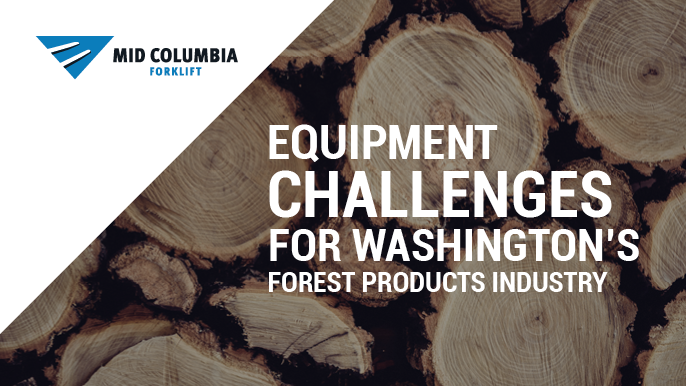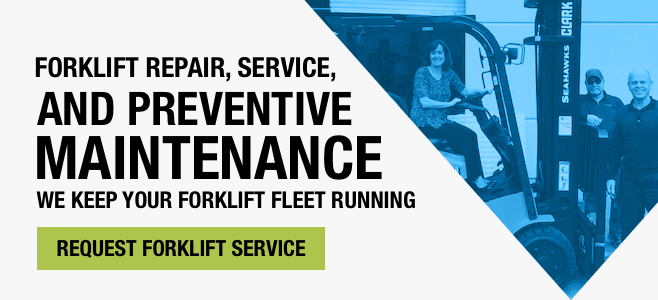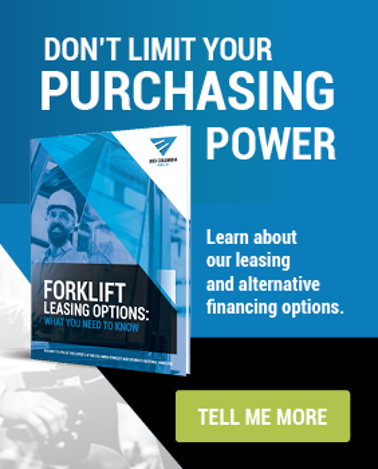Equipment Challenges for Washington’s Forest Products Industry
by Phil Hanford, on December 27, 2019 at 10:00 AM

Washington State is home to a diverse and robust forest products industry. Featuring numerous sawmills, lumberyards, logging operations, and other adjacent businesses, forest products are the third largest industry in our state. For workers processing and moving these sustainably sourced products, proper material handling equipment is essential.
For this heavy-duty industry, equipment must be durable, powerful, and reliable to overcome demanding working conditions. These four key challenges make proper equipment selection a must for Washington’s forest product industry.
Durable Pneumatic Tires
Working in around lumberyards and sawmills means increased wear and tear on your forklift’s tires. Frequent exposure to rough driving paths, mud, wood chunks, and other debris can lead to frequent flat tires or shorter lifespans in general. Implementing options such as solid of foam-filled tires or solid shaped pneumatic tires can help to reduce this damage and improve tire performance over time.
Stability Over Rough Terrain
Those threats to tire integrity are a challenge for forklift stability, load security, and operator comfort. Forklifts equipped with Kalmar’s Big Wheel concept help overcome these challenges by increasing ground clearance and distributing forces across the tire’s larger surface areas, effectively reducing stability treats. They also come with design considerations such as a reversible cooling fan to blow dust out of the air intake to help reduce overall risks.
High Capacity Lifting Power
Lumberyards and sawmills frequently deal in moving huge loads of logs and lumber long distances. Hardwoods and other specialty products can quickly grow in load weight and outclass smaller capacity forklifts. Kalmar’s forklift load capacities range from 5 tons for light work all the way up to 72 tons for the biggest jobs. Right-sizing your equipment and selecting a trusted brand and provider to tackle your heaviest jobs is essential for success in Washington’s forest products industry.
Environmentally Friendly Fuel Options
Many purchasers of lumber have very high standards when it comes to their exposure to exhaust fumes - discerning home builders and designers may refuse products exposed to heavy fumes due to the smell. Luckily, engineers have made great progress in options for hybrid and electric engines that pose less of a threat to forest product desirability. Kalmar forklifts offer hybrid and electric options in these capacities up to 72 tons in their standard forklifts and beyond that capacity in specialty equipment, making them a strong option for businesses that move lumber.
Ultimately, lumber products businesses need to be sure that they right-size their equipment purchases to meet the unique challenges of their workspace. Whether that means diesel or electric, air-filled or solid tire alternatives, or adding on more ergonomically friendly options, Mid-Columbia Forklift/MidCo Material Handling can help you make the right purchasing decision. Our high-capacity equipment specialists can determine the best configuration to fit your business.
Check out our high-capacity equipment lineup to meet your needs for sawmills, lumberyards, and other forest industry settings.
Further Reading:
Kalmar Models for Sale
4 Key Material Handling Configurations for Washington Port Efficiency
Best Equipment for Intermodal Shipping Container Management





